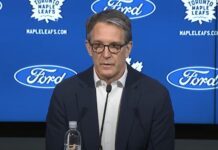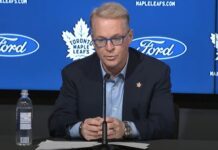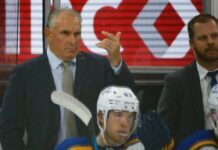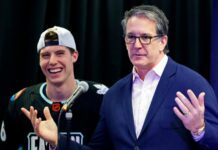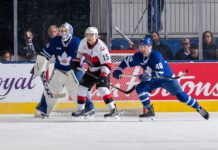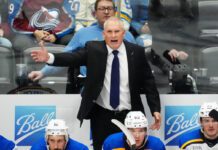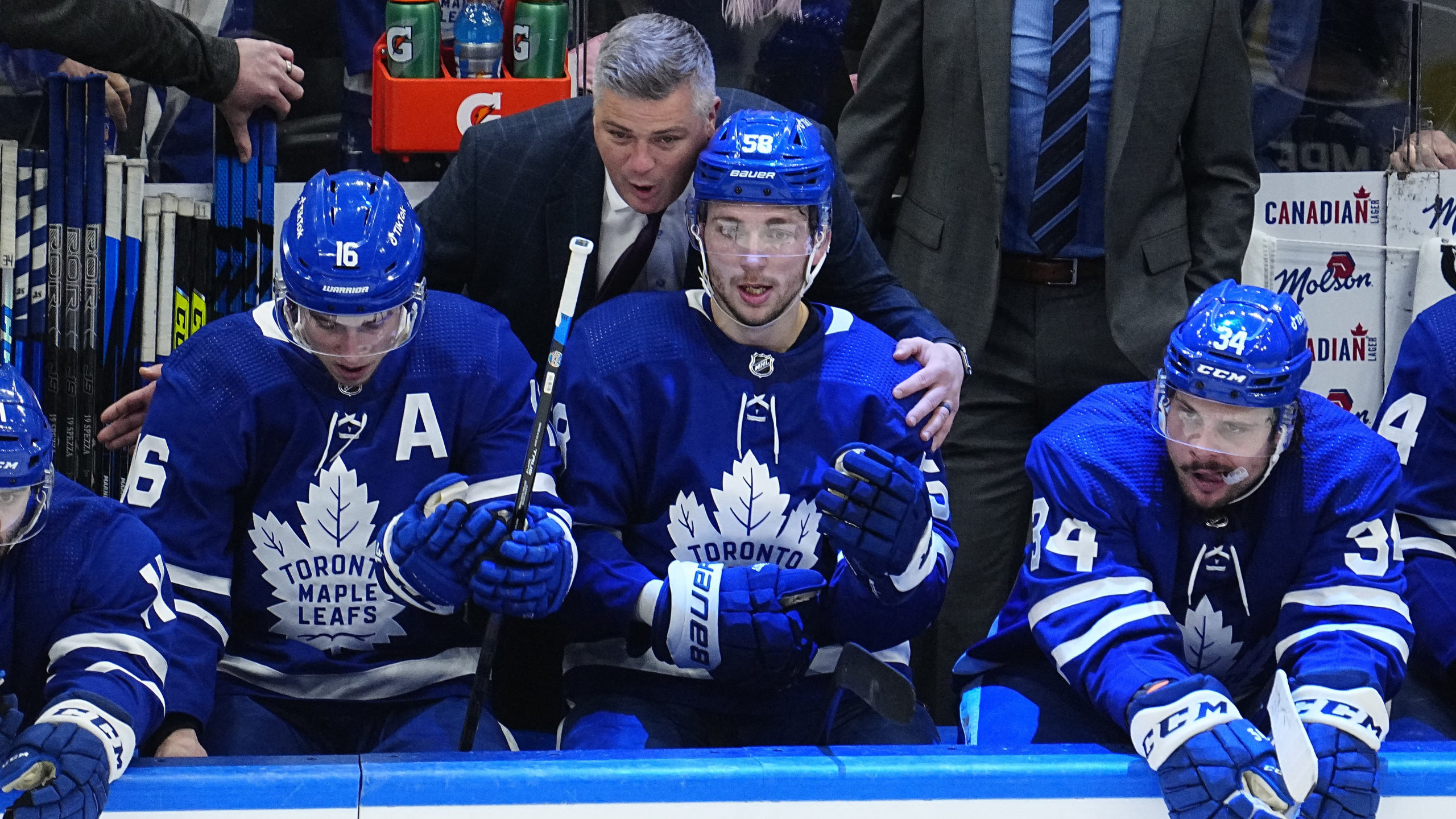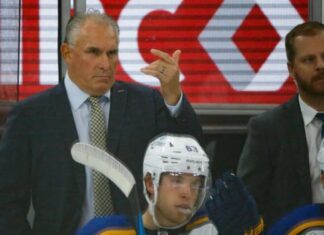On Friday, we received the most definitive report so far that Sheldon Keefe is staying on as Maple Leafs head coach for the 2023-24 season.
Per Darren Dreger, Brad Treliving and Keefe have been working together to interview replacements for the departed Spencer Carbery (now head coach of the Washington Capitals) and an extension is likely forthcoming at some point in the summer (which makes sense if he’s staying — there is no sense in lame ducking him).
Brad Treliving + Sheldon Keefe are well into interviewing candidates to replace Spencer Carbery. Treliving + Keefe spent time getting to know one another as soon as Treliving was hired as GM. No extension for Keefe yet, but those discussions are expected to happen this summer.
— Darren Dreger (@DarrenDreger) June 16, 2023
In this space, we’ve often made our criticisms clear about Sheldon Keefe’s coaching performance in the playoffs, where he’s often been outcoached or at best net neutral in his five postseasons in Toronto to date. There has been the consistently timid starts to games, the inability to impose their style of game on the opponent, slow adjustments as series wear on, his defaulting to Matthews-Marner and greatly elevating the minutes of the stars at the first sign of trouble (especially when they’re not rolling in the game whatsoever), the team’s reduced pace of play in recent postseasons, among other issues.
Treliving’s words upon his arrival in Toronto didn’t come with any grand proclamations of major changes to come, and so far, the report that Brendan Shanahan has reassured the core of their place on the team going forward plus this decision to keep Keefe is certainly not the most refreshing approach for a fan base whose calls have never been louder for significant alterations to the player roster and coaching staff. Only time will tell if it’s a wise first move by Treliving not to make change for the sake of change, but for many in the market, it’s understandable if this is starting to sound like Groundhog Day only with a new GM’s face attached to it.
One subtle difference in Treliving’s messaging after the hiring was his hinting at a desire to de-emphasize the core and more clearly define/empower role players in the lineup, but this is where the real questions come in: Actions during the season will speak much louder than words in the offseason, and will Keefe be willing to revise some of the stubborn habits he’s displayed in the playoffs, starting by shifting the culture around the team somewhat in the regular season? Playing #34 and #16 a ton of minutes together might work on many nights in the regular season, but the Leafs need to be able to establish the proper, balanced three-line attack we’ve seen from the likes of the Vegas Golden Knights in the 2023 playoffs and many past Cup winners if they’re to survive four different challenges over four rounds in the playoffs.
It’s clear from viewing the level of physical sacrifice the likes of the Golden Knights and Panthers were making to grind out the hard offense in the playoffs that the Leafs also need a coach who can push the nucleus of this group to find that extra 10% they didn’t know they even had in them at playoff time. With Keefe, the team has gone from a gangbusters offense in the regular season to pedestrian offensively in the playoffs year after year after year, making the excuse of a hot opposition goalie lamer and lamer with each passing postseason failure. The stark lack of point shots and offense generated by their defense, paired with the drying up of the offense from the core forwards as series wear on (due to an inability to generate enough chances from the prime real estate and/or bury enough of those chances), has been a maddening reality of Leafs playoff hockey.
To some extent, this decision might be a reflection of the talent available in the free-agent coaching market, where Joel Quenneville still hasn’t been reinstated by the NHL and the rest of the available candidates are not particularly inspiring. It’s much different than last summer when Dubas’ decision to stand by Keefe came at the potential opportunity cost of not hiring a new voice out of a bumper crop of high-end head-coaching candidates — Bruce Cassidy, Pete DeBoer, and Barry Trotz among them.
Since taking over the Leafs GM chair, Treliving has cited the example of inheriting Bob Hartley as head coach in his first year on the job and Hartley winning the Jack Adams Trophy after a turnaround season in which the Flames made it to the second round of the playoffs in 2015. However, there are plenty more examples where an incoming GM inherits a coach and keeps the coaching-change bullet in the chamber until the first sign of trouble.



